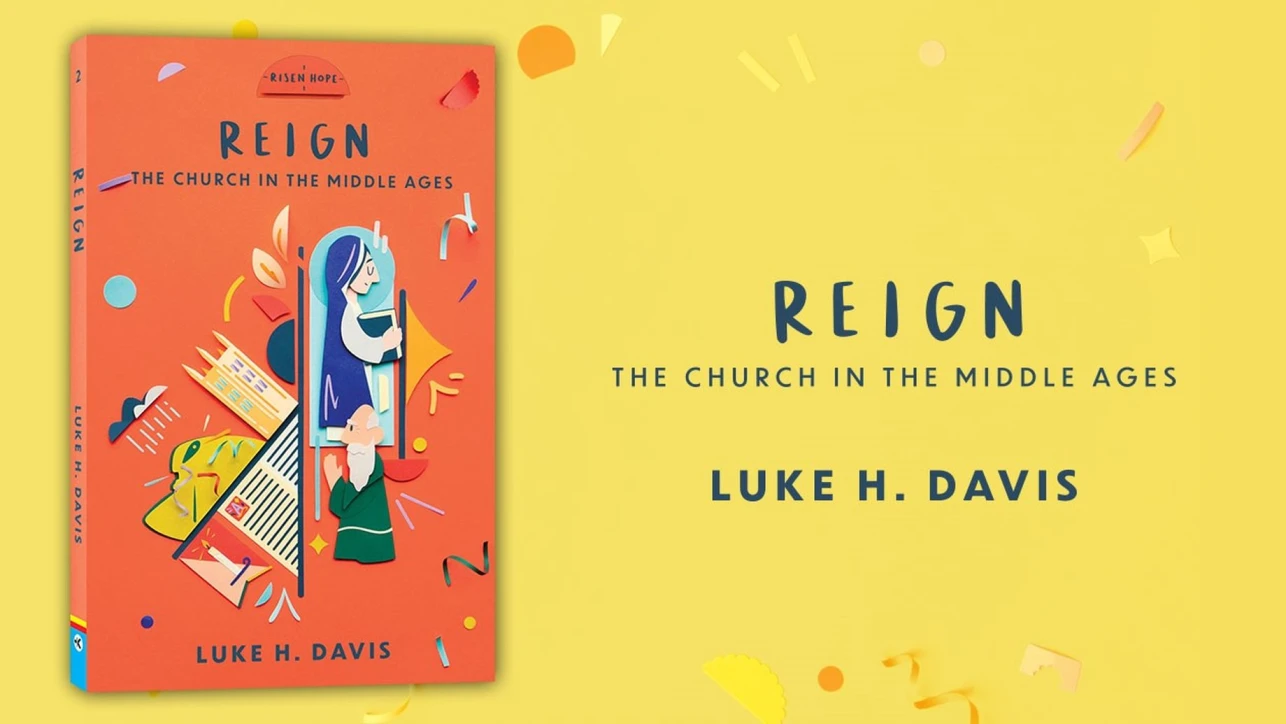Reign
When I was in elementary school, our physical education classes took one day (I think it was every April) for students in each grade to run a timed distance race. By the time I was eleven years old, the distance for my grade was a mile. I remember we would be on the car park near our school, and the idea was to run down to an orange cone, back to the starting line, back to the cone, back to the line…until we had covered the mile distance. I was a chunky tyke then (little has changed, by the way, over the last forty years), but I was determined to bolt out to a lead and hold it for as long as possible. Imagine my surprise when I scramble in front of the whole pack of boys, turned at the cone in first place, and hear gasps from my friend Todd Mardis, “What’s going on? Luke is in the

When I was in elementary school, our physical education classes took one day (I think it was every April) for students in each grade to run a timed distance race. By the time I was eleven years old, the distance for my grade was a mile. I remember we would be on the car park near our school, and the idea was to run down to an orange cone, back to the starting line, back to the cone, back to the line…until we had covered the mile distance. I was a chunky tyke then (little has changed, by the way, over the last forty years), but I was determined to bolt out to a lead and hold it for as long as possible. Imagine my surprise when I scramble in front of the whole pack of boys, turned at the cone in first place, and hear gasps from my friend Todd Mardis, “What’s going on? Luke is in the lead!”
The sad thing was, I couldn’t hold that lead. Running back toward the initial start, I felt my lungs burning and my legs getting heavier. I dropped back in the pack. I couldn’t sustain my pace. It was what more seasoned runners call “hitting the wall.”
As the Church turned from ancient times into the Middle Ages (although they didn’t know at the time they were moving from one era to the next), it was granted increasing freedom and power. The good news was their dire and harsh days of old were behind them somewhat; the bad news was that at many points, the growth and spiritual vitality of the family of God began to “hit the wall”. The Church was more than ever before at the center of everyday life in the fragmented political realms of Europe; it was a Church that began to look more like a reigning power than a redeemed people. And because it got used to having that sort of attention and power, there were times it abused its authority or failed to display the humility and love of Jesus. At some times, the results were horrific. But at other points, people from within the Church rose up to correct those wrong and did so in lovely fashion. And the great thrill for me, in writing Reign: The Church in the Middle Ages.
When rulers failed to give order to the world around them, leaders such as Benedict and Pope Gregory rose to the occasion. Benedict wrote a rule of instruction for monasteries and Gregory provided hope and determination to the people of Rome against the attacks of invaders. Facing the injustice of banishment, Theodulf of Orleans wrote enduring hymns.
The specter of war and death in the Crusades is a shameful chapter in the history of Christianity, but Francis of Assisi sought to persuade others through the Gospel rather than the sword. Regretting his role in the bloodshed of an Irish battle, Columba in turn dedicated his life to bringing the message of Christ to others by training missionaries on the isle of Iona.
When the Church needed clarity of teaching and devotion to Christ, Anselm, Thomas Aquinas, and Julian of Norwich joyfully stepped forward in faith and leadership.
When religious tyranny expelled Peter Waldo from his hometown, he gathered faithful families in the caves of Italy and taught them Scripture. When facing the resistance of king and Church against human liberty, Stephen Langton wrote the Magna Carta and changed how we think of human rights.
And when the medieval Church drifted away from the centrality of Scripture into deepening corruption, John Wycliffe and John Hus willingly served Christ even at great threat to their own lives.
Yes, the medieval Church had its problems. It desired power, sought to conquer, and fell into corruption. But from within its ranks, people sought to love Christ, to secure freedom and hope for others, and to proclaim the Gospel and begin to reform the Church for which Christ died.
Yes, the medieval Church had its problems. It desired power, sought to conquer, and fell into corruption. But from within its ranks, people sought to love Christ, to secure freedom and hope for others, and to proclaim the Gospel and begin to reform the Church for which Christ died.
My grandfather, a Presbyterian pastor, was known to emphasize that Christ loved the Church. In the pages of Reign: The Church in the Middle Ages, I hope you re–discover the love Jesus has for his imperfect, stumbling, wayward Church, a love that refuses to leave that Church alone, and who raises up those who desire to shape a people marked by God’s grace above all.


